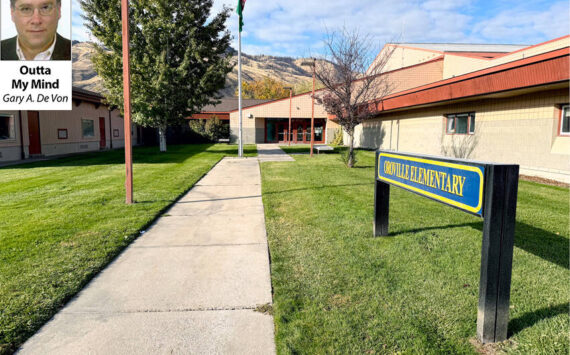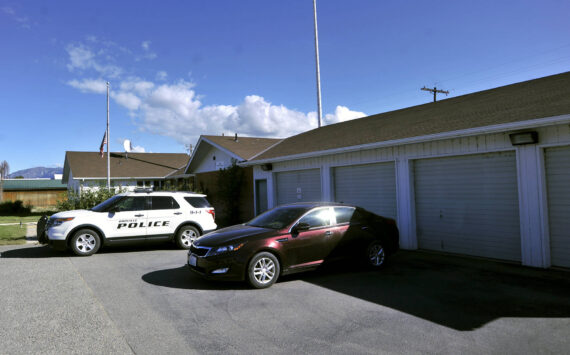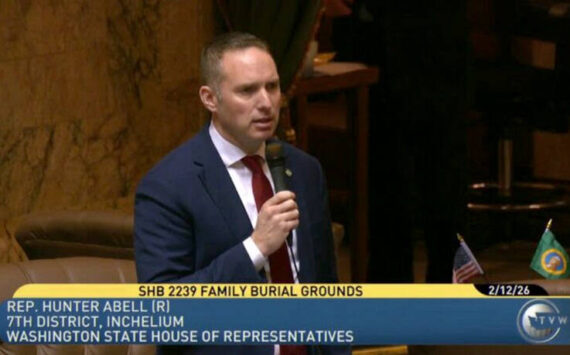OROVILLE – Scott Miller, director of the Okanogan County Department of Emergency Management, presented the Oroville City Council with a Comprehensive Emergency Management Plan at their Tuesday, March 1 meeting.
Oroville, like most municipalities in the county, has partnered with the county Department of Emergency Management (DEM) in the comprehensive plan, paying the county to put a plan together. Miller said after the council takes some time to review the plan they can accept it as written or make changes based on the city’s needs. He also encouraged comment from the heads of the police, fire and emergency medical services departments, as well as public works. The plan is a requirement of the federal Homeland Security Department.
“This comprehensive plan brings Oroville into compliance, you may adopt it with whatever amendments you want to add,” said Miller, adding the plan will need minor revision every year and a major revision every four years.
Miller stated that the plan was two years in the making and already had state approval. The plan utilizes an Incident Command System (ICS). Oroville’s heads of the police, emergency medical services, fire and public works each said they had training in ICS. Miller suggested the council members might also wish to take some of the on-line ICS courses that are available. Councilwoman Neysa Roley said she had done ICS training for her job.
One thing that makes Oroville unique is its proximity downriver from Enloe Dam. Miller said the Okanogan County PUD has a plan in place to deal with an emergency should the dam break. The emergency plan is required by the Federal Energy Resources Commission as part of the PUD’s relicensing efforts. Miller suggested Police Chief Clay Warnstaff and Supt. of Public Works Rod Noel meet with the PUD to discuss the existing plan and what part Oroville would take in the unlikely event of a dam break.
“The chances of Enloe Dam breaking are virtually nill, like one-tenth of one percent,” said the DEM director. “The PUD has cameras and alarms on the dam that are tied into Okanogan County dispatch. If an alarm sounded a deputy or an Oroville Police officer would go and check the situation and next we would tone out the fire people with their pagers to go door to door to all of the people who live next to the Similkameen and inform them of the break.”
Police Chief Warnstaff said that all the computer models he has seen show that should the dam fail the water would not go over the levies.
Mayor Chuck Spieth said that when there was a rockslide on the Canadian side that blocked the river, the Oroville Police Department, under the late Chief Randy Wheat, did a very good job of informing people along the river.
Like most emergencies, Miller said the city might want to deal with them in-house and call on the county for additional help when the city nears the ends of its resources.
“You may contact the county and then the commissioners would declare an emergency and bring trucks, sand, whatever may be needed to deal with the emergency. In my tenure here I have never seen the county send a city a bill for this kind of help,” said Miller.
The DEM director said 90 percent of emergencies are handled by first responders like police, fire and ambulance, but the county can aid the city in anything from a single structure fire to a large wildfire.
Oroville and its nearness to the border with Canada also makes the city unique. Because of this the federal government has earmarked funding for off-duty Oroville Police officers to aid the U.S. Border Patrol through the Homeland Security Department’s Stone Garden grants. Miller said his office manages the $205,000 in grant money from the program.
“Last year there was unspent money so that is being rolled into this year. The Border Patrol really likes Oroville and wants Oroville to have a four-wheel drive vehicle,” Miller said.
Miller left copies of the Comprehensive Emergency Plan for the mayor and council to review so the city may adopt it at a future meeting.
When asked if there were any further comments, Debra Donohue, coordinator for the Oroville Ambulance Department said, “I’d just like to reiterate that the ICS is a great plan and I recommend the council and (city clerk) Kathy Jones learn it.”
Oroville City Council meets on the first and third Tuesday’s of each month at 7 p.m. The next meeting of the council will be on March 15 in the council chambers at city hall located at 1308 Ironwood Street.







